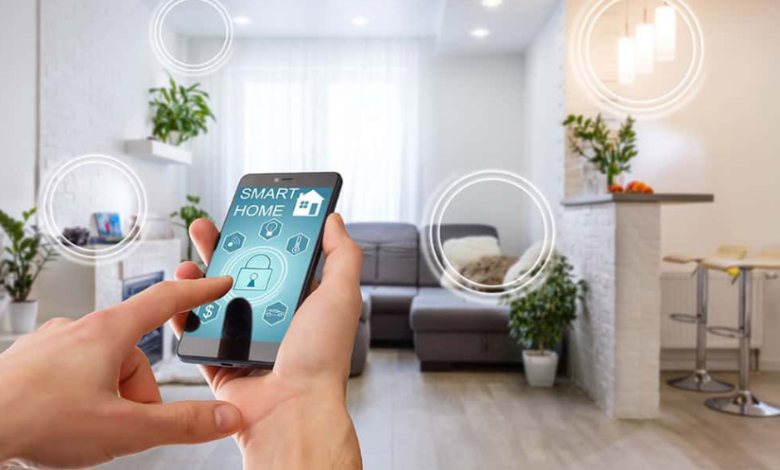Smart Home Upgrades That Require a Professional Electrician

The allure of a smart home is undeniable. From voice-activated lighting to remotely controlled thermostats, these innovations promise convenience, efficiency, and enhanced security. However, while some smart home devices are simple plug-and-play installations, many of the most impactful and integrated upgrades demand more than just a DIY spirit. Attempting complex electrical work without the proper expertise can lead to serious safety hazards, damage to your property, and even voided warranties. This is where the expertise of a https://www.estevezelectricllc.com/ becomes not just a recommendation, but a necessity.
This article will delve into several popular smart home upgrades that, for safety, functionality, and compliance, should always be entrusted to a professional. Understanding these distinctions will save you time, money, and potential headaches in the long run.
The Foundation: Upgrading Your Electrical Panel and Wiring
Before you even consider adding smart devices, it’s crucial to assess your home’s electrical infrastructure. Many older homes were not built to handle the significant electrical load of today’s smart technology. If you’re planning extensive smart home integrations, especially those involving high-power appliances or numerous interconnected devices, a panel upgrade might be essential.
Why You Need a Professional for Panel Upgrades
Upgrading an electrical panel is not a task for an amateur. It involves working with the main power supply to your home, which carries extremely high voltage. Incorrect wiring can lead to:
- Electrical fires: Overloaded circuits or faulty connections are a leading cause of residential fires.
- Electrocution: Direct contact with live wires can be fatal.
- Damage to appliances: Improper voltage distribution can fry your expensive smart devices.
- Code violations: Electrical work is heavily regulated by local and national codes. A professional ensures compliance, which is vital for insurance purposes and future home sales.
A licensed electrician will assess your current panel, determine the necessary amperage increase, and safely install a new, more robust panel. They will also ensure all wiring meets current safety standards, providing a stable and secure foundation for your smart home aspirations.
Integrating Smart Lighting Systems Beyond the Bulb
While screwing in a smart light bulb is straightforward, comprehensive smart lighting systems often involve replacing switches, installing dimmers, and even integrating with automated shades or occupancy sensors.
Complex Smart Lighting Installations
For whole-home smart lighting, you might be looking at:
- Smart Dimmers and Switches: These often require neutral wires, which may not be present in older homes. A professional can run new wiring safely.
- Recessed Lighting with Smart Capabilities: Installing new recessed lighting involves cutting into ceilings, running new wiring, and ensuring proper insulation and fire safety.
- Outdoor Smart Lighting: Weatherproof enclosures, proper grounding, and adherence to outdoor electrical codes are critical to prevent hazards.
A licensed electrician understands the intricacies of home wiring, can identify and resolve compatibility issues, and ensures that all installations are up to code, preventing flickering lights, circuit overloads, and other frustrating problems.
Smart Thermostats and HVAC Integration
Many smart thermostats are designed for relatively easy installation, especially if you have a standard 24V HVAC system. However, more advanced systems, multi-zone setups, or older HVAC units can present challenges that warrant professional intervention.
When to Call an Electrician for Smart Thermostats
- No C-Wire: Modern smart thermostats often require a “common wire” (C-wire) to provide continuous power. If your existing wiring lacks a C-wire, a professional can install one or recommend an alternative solution.
- Multi-Zone Systems: Integrating multiple smart thermostats across different zones requires a deeper understanding of your HVAC system’s wiring and controls.
- Older HVAC Systems: Some older systems operate on different voltage or relay mechanisms that are incompatible with standard smart thermostats, requiring specialized wiring or adapters.
A professional can accurately diagnose wiring needs, safely connect your new thermostat, and ensure seamless integration with your heating and cooling system, optimizing energy efficiency and comfort.
See also: Revamping Marketing Strategies for Home Builders
Electric Vehicle (EV) Charging Station Installation
As EVs become more prevalent, many homeowners are considering installing a Level 2 charging station. This upgrade provides significantly faster charging speeds than a standard wall outlet but requires a dedicated 240-volt circuit.
The Critical Role of a Professional for EV Chargers
Installing an EV charging station is one of the most significant electrical upgrades a homeowner can undertake. It involves:
- Dedicated Circuit: A new, high-amperage 240V circuit must be run from your electrical panel to the charging station location.
- Panel Capacity Check: Your existing electrical panel must have sufficient capacity to handle the additional load of the EV charger. If not, a panel upgrade will be necessary.
- Permits and Inspections: Most jurisdictions require permits and inspections for EV charger installations to ensure safety and code compliance.
Only a qualified licensed electrician should perform this work. They possess the knowledge and tools to safely install the wiring, circuit breaker, and charging unit, ensuring it meets all local electrical codes and manufacturer specifications. Attempting this yourself is extremely dangerous and could lead to electrical fires or severe injury.
Security Systems and Integrated Smart Locks
While some DIY security cameras are simple to set up, comprehensive smart security systems, especially those with hardwired components, integrated smart locks, and outdoor surveillance, benefit immensely from professional installation.
Hardwired Security and Smart Lock Systems
- Hardwired Cameras: For reliable, continuous power and data transmission, hardwired security cameras are often preferred. Installing these requires running new cables through walls and ceilings.
- Integrated Smart Locks: While battery-powered smart locks are common, some advanced systems integrate directly into your home’s electrical system for enhanced features or backup power.
- Centralized Control Panels: Complex security hubs often require dedicated power and data connections.
A professional ensures that all components are correctly wired, grounded, and configured to work seamlessly together, providing robust and reliable protection for your home. They can also troubleshoot any network or power issues that might arise during installation.
Conclusion
Smart home technology offers incredible possibilities for enhancing comfort, convenience, and security. However, realizing the full potential of these innovations often requires going beyond simple plug-ins and delving into your home’s electrical infrastructure. For upgrades involving your electrical panel, new wiring, high-voltage circuits, or complex integrations, the expertise of a licensed electrician is indispensable. They ensure safety, compliance with electrical codes, optimal performance of your smart devices, and ultimately, peace of mind. Investing in professional electrical services for these key upgrades is an investment in the safety and longevity of your smart home.





